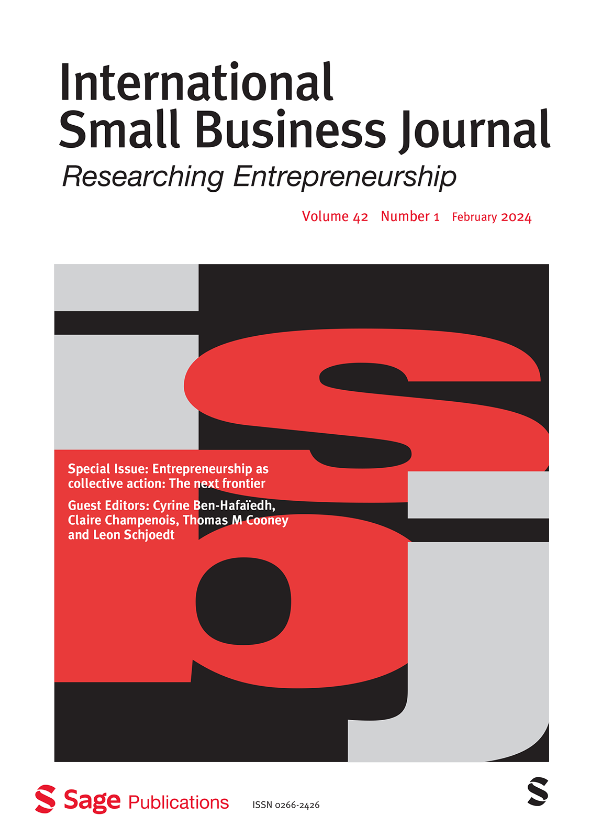家庭中小企业是在什么情况下实现高增长的?行为视角
IF 3.9
2区 管理学
Q1 Business, Management and Accounting
International Small Business Journal-Researching Entrepreneurship
Pub Date : 2022-09-01
DOI:10.1177/02662426221102859
引用次数: 0
摘要
在全球范围内,高增长企业对创造就业、财富和经济发展做出了不成比例的贡献。然而,对这种增长模式发生的环境的了解是有限的,关于中小型企业(SMEs)的研究结果是不确定的。采用行为代理模型,我们分析了家族控制和相关细微差别(即家族所有权程度和家族首席执行官的存在)对中小企业成长的影响。此外,我们认为,在调查中小企业的高增长时,闲置资源的类型及其可用性是一个至关重要的组织偶然性。通过对欧洲39631家中小企业13年的样本分析,我们发现,与非家族企业相比,家族企业实现高增长的可能性更小;家族CEO进一步降低了这种可能性。相反,在较高(相对较低)的家族所有权水平下,家族企业实现高增长的可能性增加。此外,高自由裁量权和低自由裁量权闲置资源的可用性影响这些关系。我们的研究促进了目前对高增长的理解,特别是对家族企业的理解。本文章由计算机程序翻译,如有差异,请以英文原文为准。
Under which circumstances do family SMES achieve high growth? A behavioural perspective
High-growth firms contribute disproportionately to the creation of employment, wealth and economic development on a global basis. Yet, knowledge of the circumstances under which such growth patterns occur is limited, and the findings with regard to small and medium sized enterprises (SMEs) are inconclusive. Adopting the behavioural agency model, we analyse the effect of family control and related nuances (i.e. degree of family ownership and presence of a family chief executive officer (CEO)) on SME growth. Furthermore, we argue that the type of slack resources and their availability are a crucial organisational contingency when investigating high growth in SMEs. Using a sample of 39,631 European SMEs over a 13-year period, we find that family firms are less likely to achieve high growth compared to non-family firms; having a family CEO further reduces this likelihood. Instead, at higher (vs lower) levels of family ownership, the probability of family firms achieving high growth increases. Furthermore, the availability of high- and low-discretion slack resources influences these relationships. Our study advances current understanding of high growth in general, and family firms in particular.
求助全文
通过发布文献求助,成功后即可免费获取论文全文。
去求助
来源期刊
CiteScore
10.80
自引率
8.50%
发文量
49
期刊介绍:
The International Small Business Journal (ISBJ) is a leading peer-reviewed journal renowned for publishing high-quality original research papers on small business and entrepreneurship. It prioritizes research-based studies that contribute to theory development, critical understanding, and policy formulation related to small firms.
ISBJ papers encompass theoretical, methodological, and empirical studies from various disciplines and perspectives, aiming for research excellence in the field. The journal provides a critical forum for world-class contributions analyzing entrepreneurship and entrepreneurial behavior.
This refereed journal is valuable to academics, policymakers, analysts, government and business officials, small business representative bodies, and support agencies seeking to gain insights into the sector, trade, business institutions, and related matters.

 求助内容:
求助内容: 应助结果提醒方式:
应助结果提醒方式:


